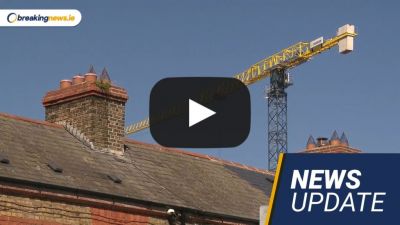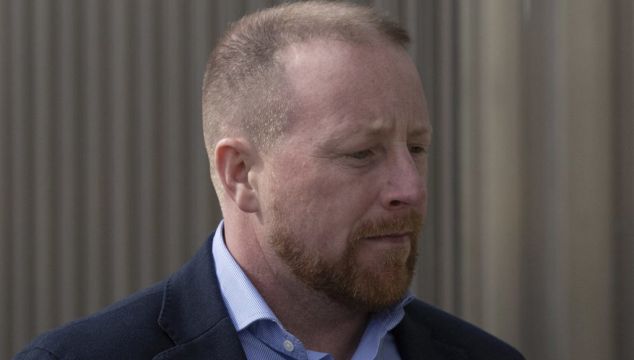An alleged IRA member who was jailed for seven years for the rape of two teenage boys at a "Republican safe house" two decades ago has failed to get more time to bring an appeal on the basis that an alleged "newly discovered fact" showed there had been a miscarriage of justice.
At the three-judge court, Seamus Marley's lawyers claimed the defence and prosecution in his case had an agreement about the running of the case without his knowledge and that he should be allowed more time to bring an appeal against his rape and sexual assault convictions in light of the discovery.
However, in dismissing the application, Court President Mr Justice George Birmingham said that there was no evidential basis for Marley's submissions.
In May 2019, the Central Criminal Court sentenced Marley to seven years' imprisonment for the sexual assault and rape of two boys in Co Louth on dates in the early 1990s.
Sentencing judge Mr Justice Paul McDermott said the Belfast-native used his standing in the republican movement, a movement "well capable of clandestine killings", to silence the victims.
Marley (40), last of Belfield Court, Stillorgan Road, Dublin, had pleaded not guilty, but after a six-day trial the jury returned unanimous guilty verdicts on a total of six counts of sexual assault and two counts of rape.
In his submission to the court on Thursday, Marley, who initially drew up his own appeal with the aid of a fellow inmate in the Midlands Prison, claimed his former legal team and the prosecution's legal team had entered into an "agreement as to the running of the case without the applicant’s knowledge or consent".
Legal representation
Marley contended that the "prosecution's legal representatives reneged on the agreement in the course of the trial and the applicant’s [Marley] legal representatives done nothing about it".
Barry White SC, for the appellant, said Marley had no proper legal representation when drawing up his appeal which led to a delay.
In July 2020, the Court of Appeal ruled that Marley had filed for an appeal against his conviction outside the required 28-day period in which it should have been lodged. A defendant normally has four weeks from the date of sentence to file a notice of intent to appeal.
The court subsequently refused Marley more time to lodge his appeal after ruling there was not even "a modest degree of optimism" that any of his grounds of appeal might succeed.
Mr Justice George Birmingham, presiding at the non-jury court on Thursday, said Marley's contention was that there was an agreement between the prosecution and the defence at the applicant's trial but that there "was no evidence whatsoever" to ground the claim, asking: "Where are we going?"
Mr Justice Birmingham added: "Is the court's time being wasted without hard evidence?"
The judge said there had been "multiple requests" for hard evidence to back up the claim.
Mr Birmingham said there had also been an issue in connection Marley's extradition from Spain to face trial on the charges regarding whether the charges were those before the court or related to alleged "subversive activity".
Patrick Gageby SC, for the State, said the charges on the warrant for Marley's surrender "mirrored" those for which he was sent for trial.
Alleged agreement
Mr Justice Birmingham said that the court was "still back to the [alleged] agreement" between the prosecution and the defence.
Mr Gageby said Marley had "no evidence and no affidavit" regarding any deal between the two legal teams and had consented to his extradition from Spain in 2017.
In delivering the court's decision, Mr Justice Birmingham said "assertions" had been made by Marley about a newly-discovered fact, but there was no "evidential basis" before the court, only the assertions. Mr Justice Birmingham said Marley claims that this agreement had been kept from him and was still being kept from him.

The judge said there was no evidence to allow for an enlargement of time for Marley's appeal and dismissed the case.
It is Marley's second failed application to be granted more time to lodge an appeal against his convictions.
If you have been affected by any of the issues raised in this article, you can call the national 24-hour Rape Crisis Helpline at 1800 77 8888, access text service and webchat options at drcc.ie/services/helpline/, or visit Rape Crisis Help.
In the case of an emergency, always dial 999/112.







